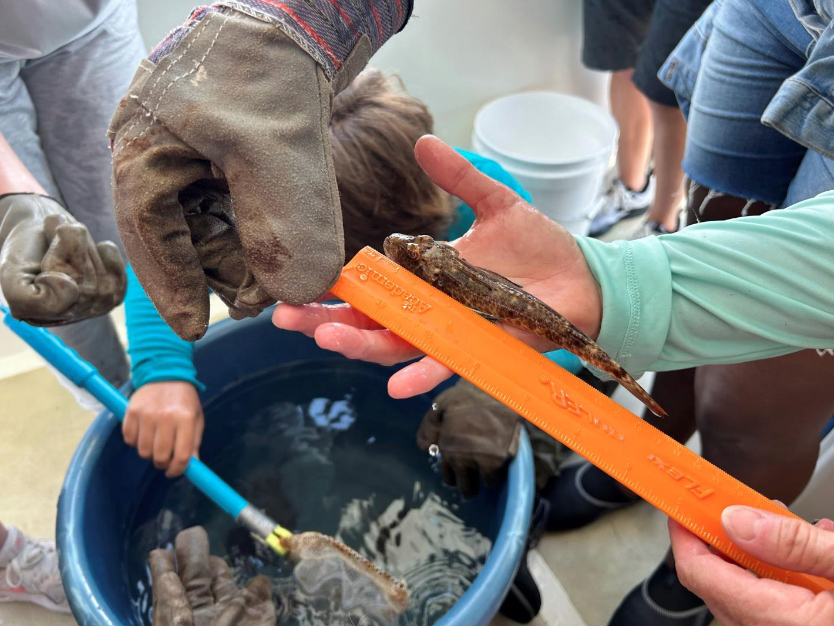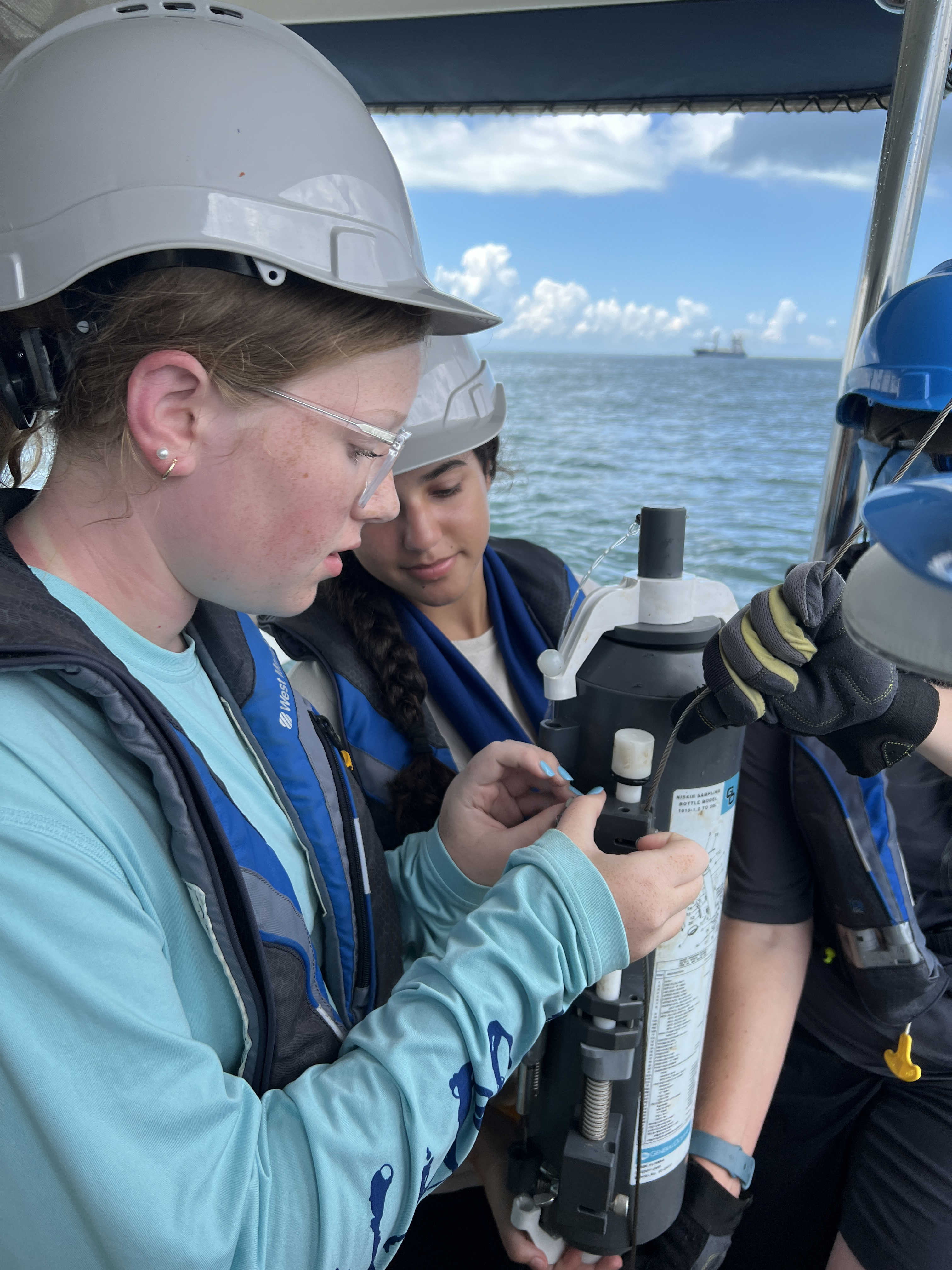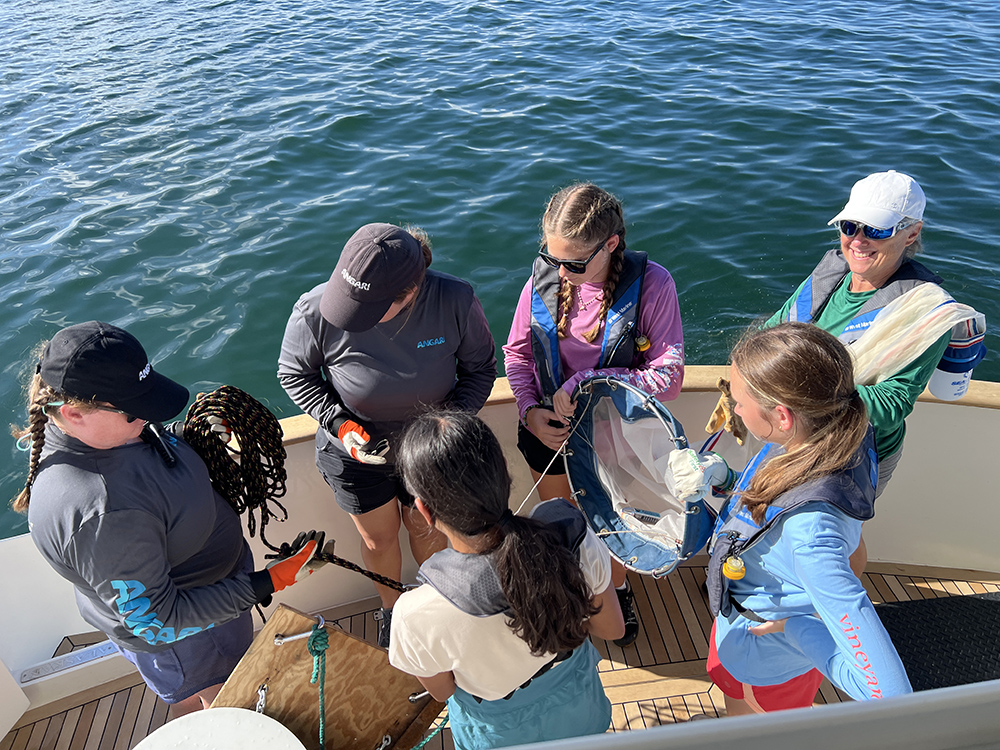Week 1 – ANGARI Cruise Field Trip, June 12-14
Hailey Clayton, Peer
The OCG campers and staff all had an amazing time aboard the R/V ANGARI. All the girls were able to experience taking samples of water using Niskin bottles. They collected samples of sediment with a sediment grab, and measured environmental conditions such as cloud coverage, temperature, water clarity, salinity, and sea state. They also used the collected samples to determine the concentrations of ammonia, nitrate, dissolved oxygen, and phosphate in the water. The campers pulled an otter trawl behind the boat to capture sea creatures, along with a plankton net to collect plankton. This opportunity allowed the campers to have hands-on experience in what a marine biologist may do on a research vessel. Since the campers collected samples all throughout Tampa Bay, they were able to see not only how it changed with time but also with location. One of the highlights as a peer was seeing a pod of seven bottlenose dolphins swimming by the boat, along with a baby dolphin! It also was a special moment when we saw how many different marine animals we caught in the trawl net, like sea horses and a huge grouper!

Sarah Blackett, Peer
Campers boarded the ANGARI research vessel bright and early at 7:00 AM. They split up into three teams. The first team collected water samples in Niskin bottles from varying depths to send over to the second team, who then tested the nutrient levels in each sample. This second team conducted measurements using chemistry kits to evaluate the presence of nitrates and phosphates along with alkalinity and pH. A third team took environmental data on oceanic and atmospheric conditions, including cloud coverage, temperature, salinity, dissolved oxygen, and water visibility using a Secchi disk. The girls also observed plankton, which they had collected using a plankton tow, under a microscope. Toward the end of the day, campers measured and counted fish caught in the otter trawl. On the first try, no fish ended up in the net, but after a second try, the campers got to observe some cool sea life, including urchins, sea robins, sponges, and what looked like a baby squid (not to mention the coyote, who we found swimming by our boat as we took off that morning!). After finishing all their duties, the campers relaxed in the shade, eating ice cream sandwiches on their way back to shore.

Kayla Dudinsky, Peer
We had a great time on the ANGARI research vessel! We measured nutrients, observed the environmental conditions, collected water samples using a Niskin bottle, and retrieved sediment samples from the ocean floor at three different locations around Tampa Bay. I believe the campers gained a lot from this experience — it was one of their first times collecting data out in the field! They learned how important it is to take this data so that we as scientists can compare and see how the marine environment changes over time. One of the highlights as a peer was drinking the plankton with our entire crew. Seeing the camper’s reactions as they took a sip of the saltwater was priceless! On our way back to port, a large pod of young bottlenose dolphins played in our wake. It was a special moment to see them jumping so high!
